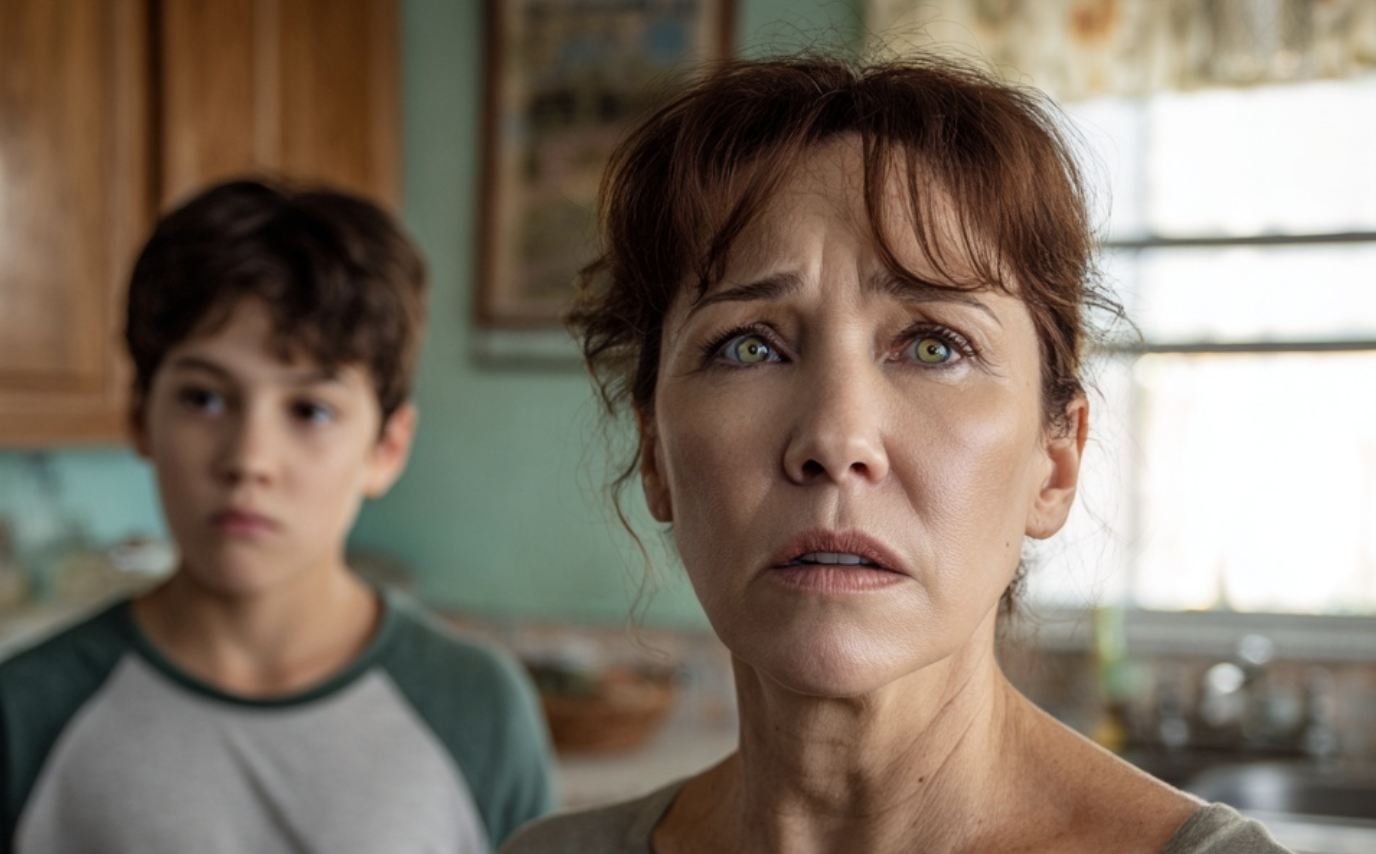Valentina was sitting at the kitchen table, sorting through utility bills, when she heard Sergey talking on the phone in the hallway. His voice was quiet, almost guilty—the very tone he used whenever Irina called.
“I understand, I understand… Yes, of course, the boy needs a vacation…” she caught fragments of the conversation. “It’s just a bit difficult with money right now…”
Valentina frowned. It had been three years since she and Sergey started living together, yet these conversations never stopped. Maksimka, Sergey’s seven-year-old son from his first marriage, of course needed his father’s support. But why was it that every time the subject of the child came up, Irina’s own needs inevitably got woven into the discussion?
“Fine, fine… I’ll transfer it tomorrow,” Sergey ended the call and walked into the kitchen with a weary face.
“Again?” Valentina asked without lifting her eyes from the papers.
“Max needs camp. A children’s sanatorium in Anapa.” Sergey sat down across from his wife and rubbed his temples. “Twenty thousand.”
“Twenty?” Valentina was surprised. “For a children’s camp? Did you ask what exactly that money covers?”
Sergey blushed. In that blush Valentina read everything.
“Serёzha,” she began carefully, “and who’s going with Max to this camp?”
“Well… Irina, of course. He’s still little.”
“I see.” Valentina put the bills aside and looked at her husband intently. “And how much does a trip cost for a seven-year-old child? Without an accompanying adult?”
“How should I know…” Sergey avoided her gaze.
“Find out.” Valentina’s voice carried no aggression, only fatigue. “Just find out.”
The next day Sergey came back from work looking like a storm cloud.
“Well?” Valentina asked, not turning from the stove.
“The child’s ticket costs eight thousand,” he said quietly. “The adult one—twelve.”
Valentina turned off the gas and faced her husband.
“So out of twenty thousand, eight goes to Maksim, and twelve to Irina?”
“She can’t just send him alone!”
“Serёzha, the child is seven. In decent camps there are counselors, medical staff, entertainers. Children aren’t abandoned.”
Sergey sat at the table and buried his head in his hands.
“She says Max won’t go without her. He’ll cry.”
“Did you ask Max?”
“No…”
Valentina sat down beside him. In three years of living together they had never had a serious fight. She loved Sergey—reliable, honest, hardworking. But these constant financial injections into his ex-wife’s life were wearing her out.
“Let’s calculate.” Valentina took a piece of paper. “Alimony—fifteen thousand a month. Plus extras: clubs, clothes, treatments. On average, twenty-five thousand a month. And now vacations too.”
“You want me to abandon my son?”
“I want you to see the difference between caring for your son and supporting your ex-wife.” Valentina spoke calmly, but determination shone in her eyes. “Tell me honestly: when Irina asks for money ‘for Max,’ does she spend it all on him?”
Sergey stayed silent.
“Serёzha, answer.”
“I don’t know… Maybe some on herself…”
“Some?” Valentina gave a short laugh. “And what does Irina live on? She doesn’t have a steady job.”
“She takes side gigs sometimes…”
“Sometimes. Mostly she lives on the alimony you supposedly pay for your son.” Valentina stood, paced the kitchen. “Do you know what bothers me most? Not that she spends your money on herself. But that she does it through the child.”
“What do you mean?”
“She’s taught Max to ask you for money. A seven-year-old calls his dad and says: ‘Daddy, Mommy said you won’t buy us a camp ticket.’ Can you imagine what goes through that boy’s head?”
Sergey paled.
“She doesn’t say that…”
“She doesn’t? Then who does? Did Max himself figure out to ask for exactly twenty thousand? For exactly a camp in Anapa? Did he study travel agency price lists?”
Valentina sat across from her husband and took his hands.
“Serёzha, I’m not against you helping your son. I’m against you being used. And most of all, I’m against them using the child for it.”
“And what do you suggest?”
“Be honest. With yourself, with Irina, with Maksim.” Valentina’s tone was firm. “You pay alimony—that’s your duty as a father. But you are not obliged to support your ex-wife. And you are not obliged to fund her vacations.”
“But if Max doesn’t go to camp…”
“He’ll go. For eight thousand, not twenty. And if Irina wants a vacation—let her earn it herself.”
Sergey hesitated. Valentina saw him battling his habit of always giving in to his ex, his guilt, his wish to be a good father.
“And if she forbids Max to go without her?”
“Then it will be clear who really wants that vacation,” Valentina answered dryly.
…
Days later, after a loud fight on the phone with Irina and a tense visit where Maksim repeated his mother’s words, Valentina calmly turned the situation around. She told the boy how talented and capable his mother was, how she could easily earn for any trip herself. Under the child’s questioning gaze, Irina was forced to agree.
When mother and son left, Sergey worried:
“She’ll turn Max against me now.”
“Maybe,” Valentina replied. “Or maybe not. Max is smart. Sooner or later he’ll see who truly loves him and who just uses him.”
…
Time proved her right. Irina stopped asking for money, at least for several months. Sergey and Valentina finally managed their own vacation, and Maksim started visiting them more often, growing closer to Valentina each time.
One day he asked:
“Why don’t you and Dad have kids?”
“Do you want a brother or sister?” Valentina smiled.
“Yes,” Maksim said seriously. “But only if you’ll be good parents. Not like Mom.”
Valentina didn’t press further. Children see more than adults think. And Maksim clearly understood the difference between a home where he was loved and a home where he was used.
That evening, as Sergey drove his son home, Valentina stood at the window, watching the summer evening. Life is complicated. There are no clear rules to live by. But there are principles that preserve human dignity. One of the most important: never let yourself be manipulated, even in the name of love.
Family is not only about feelings, but also about responsibility. About boundaries. About the ability to say “no” when necessary. Especially when it’s difficult.
Valentina smiled, remembering Irina’s face that day. The woman realized she had met a worthy opponent. Not an enemy—an opponent. Someone who wouldn’t play by her rules, but also wouldn’t retaliate. Someone who would calmly, methodically defend his family.
And that turned out to be the most effective way.


